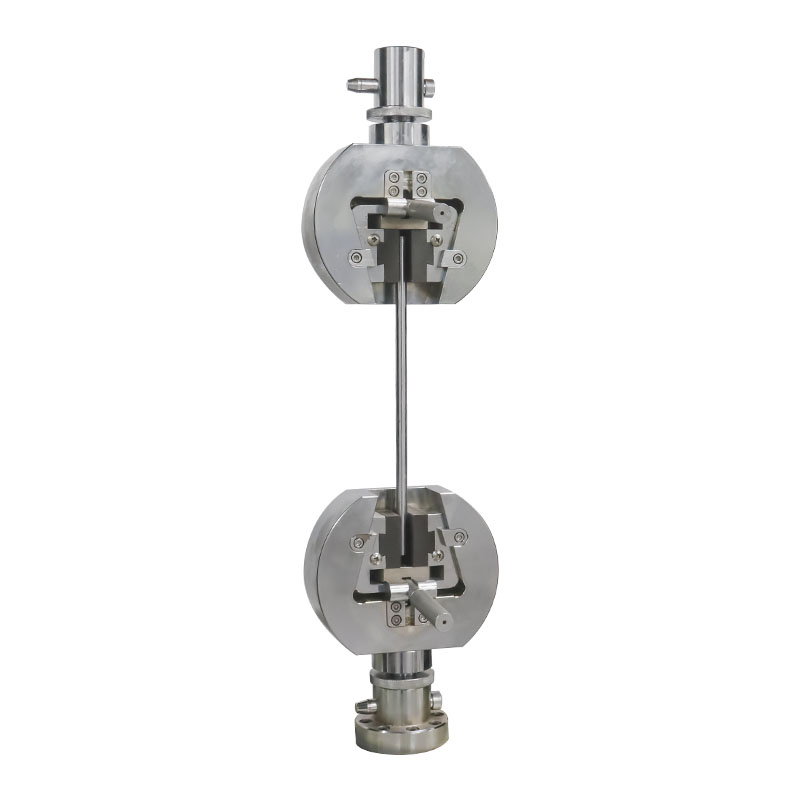Enhancing Precision and Safety: Tensile Testing Clamps for Wire
2023-10-17
Introduction
In the world of materials testing, where precision and safety are paramount, the choice of equipment can significantly impact the reliability of results. Tensile testing, which measures a material's ability to withstand axial loads, is a critical process in understanding a material's mechanical properties. When it comes to testing wires, the right clamping system is essential to ensure accurate and consistent results. In this blog, we will explore the importance of tensile testing clamps for wires and how they contribute to the quality and integrity of material testing.
The Significance of Tensile Testing for Wires
Tensile testing, also known as tension testing, is a fundamental method for evaluating the mechanical properties of materials, including wires. It involves subjecting a wire sample to a controlled axial load until it breaks, allowing for the measurement of properties like tensile strength, yield strength, and elongation. These properties are crucial in various industries, including aerospace, automotive, construction, and manufacturing, where wires are used for a wide range of applications.
Challenges in Tensile Testing of Wires
Testing wires presents unique challenges due to their small size, shape, and material properties. To obtain accurate and repeatable results, the following challenges must be addressed:
1. Gripping: Wires can be slender and smooth, making it difficult to secure them in the testing machine without slippage or damage.
2. Alignment: Proper alignment is crucial to ensure the axial load is applied precisely along the wire's longitudinal axis.
3. Sample Preparation: Careful preparation of wire samples is necessary to eliminate defects or irregularities that may affect test results.
4. Safety: Testing wires under high loads can pose safety risks if not performed correctly.
The Role of Tensile Testing Clamps
Tensile testing clamps are specialized fixtures designed to address these challenges and ensure accurate and safe testing of wires. Here's how they contribute to the process:
1. Secure Gripping: Tensile testing clamps are designed with specialized grips that prevent slippage and damage to the wire during testing. These grips can be serrated, v-notched, or specially coated to enhance friction and reduce the risk of slipping.
2. Alignment and Centering: Many clamps come with alignment features that help center the wire within the grips, ensuring that the load is applied precisely along the wire's axis.
3. Customizability: Tensile testing clamps are available in various sizes and configurations to accommodate different wire diameters and shapes. Some clamps are even designed for testing fine wires down to a fraction of a millimeter in diameter.
4. Safety Features: Modern clamps often include safety mechanisms to prevent sudden or unexpected releases of tension, minimizing the risk of accidents during testing.
5. Data Accuracy: By ensuring a secure and consistent grip on the wire, these clamps help produce accurate and repeatable test results, essential for quality control and material characterization.
Applications Across Industries
Tensile testing clamps for wires find applications across numerous industries:
1. Aerospace: Evaluating the tensile strength of wire cables used in aircraft and spacecraft.
2. Automotive: Testing the mechanical properties of wires used in vehicle components, such as springs and suspension systems.
3. Construction: Assessing the strength and durability of wire-based reinforcements in concrete structures.
4. Electronics: Verifying the tensile properties of fine wires used in electronic components and connectors.
5. Manufacturing: Ensuring the quality of wires used in various manufacturing processes and assemblies.
Conclusion
Tensile testing clamps for wires play a crucial role in achieving accurate, repeatable, and safe tensile test results. They address the unique challenges associated with testing wires, ensuring that the mechanical properties of materials are accurately characterized. As industries continue to demand higher standards of quality and safety, the importance of selecting the right tensile testing clamps cannot be overstated. These specialized fixtures are indispensable tools for engineers, researchers, and manufacturers working with wires, contributing to the advancement of materials science and the development of safer and more reliable products.



